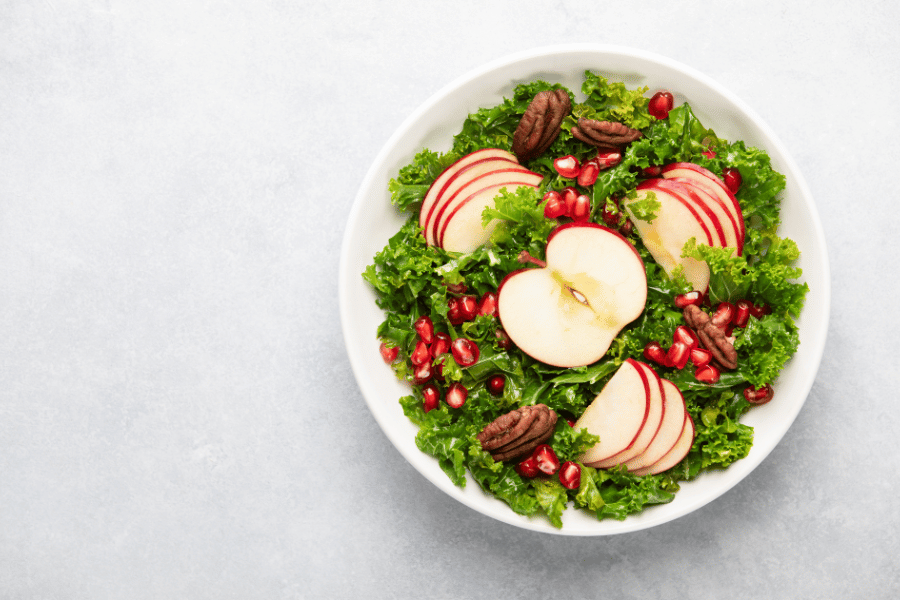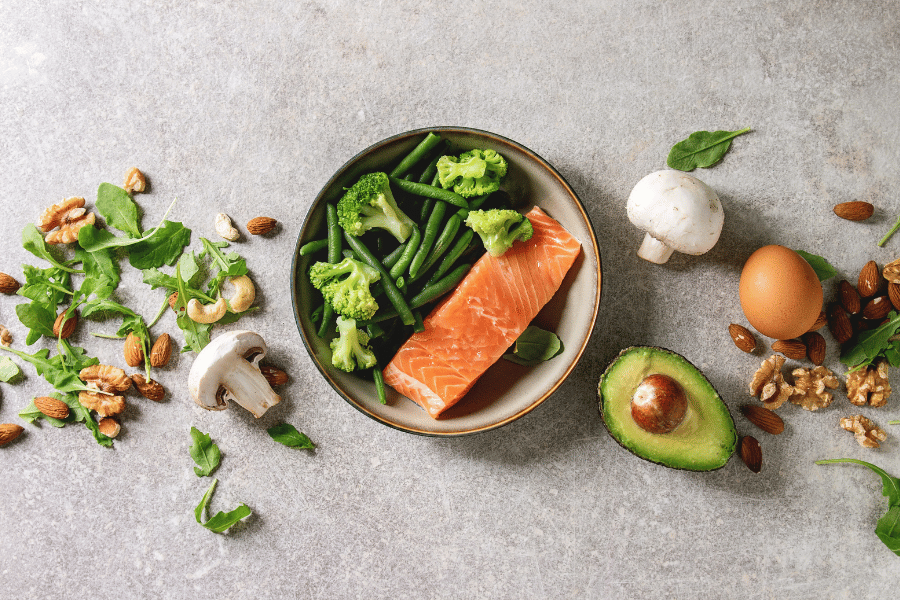Weight loss is a journey that varies from person to person, but one common aspect is the choice of diet. Understanding the basics of weight loss is crucial because it sets the foundation for this journey. The primary principle behind weight loss is creating a caloric deficit, which means burning more calories than you consume. However, the method to achieve this deficit can differ significantly, depending on the diet chosen.
What Is the Best Diet to Lose Weight Fast? The importance of choosing the right diet for fast results cannot be overstated. A diet that suits one individual might not be as effective for another due to differences in body type, lifestyle, metabolic rate, and personal preferences. Therefore, selecting a diet plan that aligns with your lifestyle, nutritional needs, and weight loss goals is essential.
Dr. Jane Smith, a renowned nutritionist, emphasizes, “The effectiveness of a weight loss diet is not just in its ability to help shed pounds quickly but also in its sustainability and nutritional balance. A good diet should not only assist in weight loss but also promote overall health.”

what is the best diet to lose weight fast
Exploring Popular Diets for Rapid Weight Loss
What Is the Best Diet to Lose Weight Fast? Ketogenic Diet: A High-Fat, Low-Carb Approach
The Ketogenic Diet, commonly known as Keto, is based on a high-fat, low-carbohydrate approach. This diet focuses on drastically reducing carbohydrate intake and replacing it with fat. This reduction in carbs puts your body into a metabolic state called ketosis, where fat from your diet and your body is burned for energy. It’s known for its quick weight loss results and has been endorsed by fitness experts like Mark Sisson, who states, “The ketogenic diet can be effective for weight loss when done correctly.”
Intermittent Fasting: Timing Matters in Eating
Intermittent Fasting (IF) is not just a diet, it’s a pattern of eating. It doesn’t change what you eat, but rather when you eat. IF involves cycles of eating and fasting periods, the most popular being the 16/8 method, where you fast for 16 hours and eat all your meals within an 8-hour window. Dr. Michael Mosley, a proponent of IF, suggests, “Intermittent fasting is a reliable method for weight loss and can help reduce the risk of chronic diseases.”
Paleo Diet: Back to the Stone Age Eating Habits
The Paleo Diet encourages eating like our ancestors from the Paleolithic era. It involves consuming foods that could be obtained by hunting and gathering – mainly fruits, vegetables, nuts, seeds, and lean meats. The idea is to eliminate processed foods and those that came with farming and agriculture. Nutritionist Loren Cordain, Ph.D., an advocate of the Paleo diet, explains, “The Paleo diet is not just a diet, it’s a lifestyle that encourages eating whole foods for overall health and weight management.”
Vegan Diet: Plant-Based and Weight Friendly
The Vegan Diet is entirely plant-based, excluding all animal products. It focuses on fruits, vegetables, legumes, seeds, and nuts. While primarily adopted for ethical and environmental reasons, it has been found effective for weight loss. Dr. Neal Barnard, a proponent of plant-based eating, notes, “A vegan diet, rich in fiber and low in fat, can lead to more effective weight loss compared to other diets.”

what is the best diet to lose weight fast
Analyzing the Best Diet for Quick Weight Loss
When determining the best diet for quick weight loss, several criteria are essential to consider. An effective weight loss diet should:
- Promote a Caloric Deficit: The fundamental principle of weight loss is to burn more calories than consumed.
- Be Nutritionally Balanced: It should provide all essential nutrients to maintain health.
- Be Sustainable: The diet should be manageable and adaptable for long-term adherence.
- Suitable for Individual Health Conditions: It should consider personal health issues and dietary needs.
Comparative Analysis of Different Diets
- Ketogenic Diet: It’s effective for quick weight loss due to ketosis, which burns fat for energy. However, it might be challenging to sustain and could lack certain nutrients.
- Intermittent Fasting: Offers flexibility and has been linked to not only weight loss but also improved metabolic health. However, timing can be challenging for some lifestyles.
- Paleo Diet: Promotes whole foods and eliminates processed foods, leading to weight loss and improved health. However, the restriction of grains and dairy might lead to certain nutritional deficiencies.
- Vegan Diet: Often lower in calories and high in fiber, promoting weight loss. However, it requires careful planning to ensure all nutrients are adequately consumed.
Why Some Diets Work Better Than Others
The effectiveness of a diet often depends on individual factors such as metabolic rate, lifestyle, food preferences, and body composition. For instance, the Ketogenic diet may yield rapid results for someone with a high metabolic rate, while Intermittent Fasting might be more suitable for those who prefer a less restrictive approach to eating.
Dr. Andrew Weil, a leader in integrative medicine, explains, “The key to successful weight loss is finding a diet that fits your lifestyle and can be sustained in the long term. It’s not just about losing weight quickly; it’s about making lasting changes for overall health and wellness.”
Key Considerations in Selecting a Diet Plan
Choosing the right diet plan is a crucial step in the weight loss journey. It’s not just about shedding pounds but also about ensuring overall health and well-being. Here are some key factors to consider:
Health Benefits and Potential Risks
- Health Benefits: A good diet should offer more than just weight loss. It should also reduce the risk of chronic diseases, improve metabolic health, and enhance mental well-being. For example, the Mediterranean diet, known for its heart health benefits, emphasizes fruits, vegetables, whole grains, and healthy fats.
- Potential Risks: Some diets may pose risks if they eliminate essential nutrients. For instance, extremely low-carb diets like Keto could lead to nutrient deficiencies or kidney issues over time. It’s crucial to understand these risks and consult healthcare professionals before starting any new diet.
Suitability for Different Lifestyles and Preferences
Every individual has unique dietary preferences, lifestyle habits, and health considerations. A diet that works for one person might not work for another. For instance, a busy professional might find meal-prep-based diets challenging, while an athlete might need a higher calorie intake than what a typical weight loss diet offers.
Importance of Personalization in Diet Selection
Personalization is key in selecting a diet plan. This involves considering personal health conditions (like diabetes or food allergies), lifestyle (active or sedentary), food preferences (vegetarian, vegan, etc.), and even cultural factors.
Dr. David Katz, a noted nutrition expert, advises, “Personalizing your diet plan is essential. It’s about creating a healthy eating pattern that is enjoyable, sustainable, and tailored to your individual needs.”

what is the best diet to lose weight fast
Implementing the Diet: Tips and Strategies
Successfully implementing a diet plan is about more than just choosing the right foods. It involves setting yourself up for long-term success through realistic goals, effective planning, and a holistic approach to health.
Setting Realistic Goals and Expectations
- Short-Term and Long-Term Goals: Start with achievable short-term goals that lead to your overall long-term objectives. For example, aim to lose 1-2 pounds per week rather than setting overly ambitious targets.
- Realistic Expectations: Understand that weight loss is a gradual process. Rapid weight loss can often lead to quick regain. Be patient and kind to yourself throughout the journey.
Planning Meals and Managing Cravings
- Meal Planning: Plan your meals ahead of time to avoid impulsive eating decisions. This can include preparing weekly menus or batch-cooking meals for convenience.
- Managing Cravings: Instead of completely denying cravings, find healthier alternatives or practice portion control. Denial can often lead to overeating later.
Incorporating Exercise for Enhanced Results
While diet is crucial for weight loss, combining it with regular exercise can enhance results and offer additional health benefits like increased muscle tone, improved mood, and boosted metabolism.
- Find Activities You Enjoy: Exercise doesn’t have to be a chore. Find activities you enjoy, whether it’s dancing, hiking, swimming, or yoga.
- Consistency is Key: Aim for consistent, moderate exercise rather than intermittent intense workouts. Even 30 minutes of daily activity can make a significant difference.
Fitness expert Jillian Michaels states, “A combination of a healthy diet and a well-rounded exercise regimen is key for weight loss. It’s not just about burning calories; it’s about overall physical and mental health.”
Monitoring Progress and Making Adjustments
An essential part of any weight loss journey is monitoring progress and being willing to make adjustments as needed. This ensures that the diet remains effective and sustainable over time.
Keeping Track of Weight Loss and Health Metrics
- Regular Weigh-Ins: Weighing yourself regularly (for example, once a week) can help track your progress. It’s important to remember that weight can fluctuate due to various factors, so don’t get discouraged by minor changes.
- Health Metrics Beyond the Scale: Consider tracking other health metrics such as body measurements, energy levels, sleep quality, and how your clothes fit. Sometimes, these indicators can show progress even when the scale doesn’t.
Adjusting the Diet for Sustained Weight Loss
- Nutritional Tweaks: If weight loss plateaus, it might be time to adjust your calorie intake or change the macronutrient composition of your diet. For instance, increasing protein intake can boost metabolism and reduce appetite.
- Listening to Your Body: Pay attention to how your body responds to your diet. If you’re feeling consistently fatigued or hungry, it might be a sign to reassess your caloric or nutrient intake.
When to Switch Strategies for Better Results
- Plateaus Are Normal: It’s normal to hit a plateau in your weight loss journey. If the plateau persists, consider changing your workout routine or modifying your diet.
- Seek Professional Advice: If you’re struggling to make progress, it might be helpful to consult with a dietitian or a health professional. They can provide personalized advice based on your specific needs and health status.
Dr. Michael Greger, author of “How Not to Diet,” suggests, “Monitoring your progress is important, but be patient and ready to adapt your strategies. Sometimes, small changes can lead to significant results.”
FAQs: Tailoring Your Diet for Fast Weight Loss
How to Choose the Right Diet for Your Lifestyle and Goals
Q: What factors should be considered when selecting a diet? A: When choosing a diet, consider factors like your nutritional needs, lifestyle, weight loss goals, any existing health conditions, and food preferences. It’s also important to think about the diet’s sustainability – can you see yourself following it long-term?
Q: How can individual preferences and health conditions influence diet choice? A: Individual preferences, such as being vegetarian or having a dislike for certain foods, can guide you towards diets that align with these preferences. Health conditions like diabetes, heart disease, or food allergies significantly influence diet choice, as some diets can exacerbate these conditions while others might help manage them.
Maximizing Weight Loss: Effective Diet Strategies
Q: How can one effectively combine diet and exercise for weight loss? A: To combine diet and exercise effectively, aim for a balanced approach. Your diet should provide sufficient energy and nutrients to fuel your workouts, while your exercise routine should complement your dietary efforts, focusing on both cardio and strength training for optimal results.
Q: What are the common pitfalls in fast weight loss diets and how to avoid them? A: Common pitfalls include overly restrictive eating, neglecting nutritional balance, and choosing unsustainable diets. To avoid these, focus on diets that promote a variety of foods, provide enough calories, and can be adapted into your lifestyle. Remember, the goal is not just weight loss but also maintaining good health.